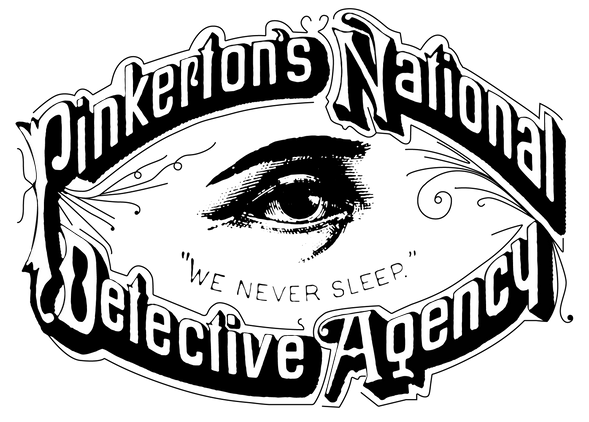Legal and Political Backlash
In the aftermath of the Homestead Strike, twenty-six states passed laws restricting or outright banning the use of Pinkerton-like agencies in labor disputes. Federal lawmakers quickly followed suit. In 1892-1893, the U.S. Congress enacted the Anti-Pinkerton Act, a provision forbidding the federal government from hiring any Pinkerton agent or similar organization, which still exists even to this day.
Thus, by the turn of the century, the Pinkertons went from being lionized as crime-fighters to being widely seen as the private enforcers of robber barons, synonymous with anti-labor violence. But, despite these bans on government contracts, private industries continued to hire the Pinkertons or similar agencies for decades after 1893, such as during the Pullman Strike of 1894, and the agency's union-busting activities continued well into the early 20th century.
The Enduring Legacy of the Pinkertons
Beyond politics, the Pinkertons had lasting cultural and policing innovations. For example, the agency’s famous logo depicting an unblinking eye with the motto “We never sleep” led to the term “private eye” for detectives.

Figure 8. The original logo of the Pinkerton National Detective Agency.
Novels and pulp fiction even featured Allan Pinkerton style detective heroes. Arthur Conan Doyle, writer of the famous Sherlock Holmes series, met with Allan Pinkerton’s son, William, later featuring a fictionalized account of McParland’s infiltration of the Molly Maguires in his final Sherlock Holmes novel The Valley of Fear.
Likewise, the agency pioneered modern criminal record-keeping. In 1870, Pinkerton operatives devised the first mug shot collection, calling it the “Rogues’ Gallery.” Pinkerton agents took photographs of arrested suspects and compiled a photographic database with physical descriptions, notes, and handwriting samples, which was circulated to banks and police across the country to identify repeat offenders.
The Pinkertons in the 20th Century
In the 20th century, public law enforcement like local police departments and the newly created Federal Bureau of Investigations (FBI) was taking over many of the Pinkertons’ old roles. With fewer assignments and its union-buster image tarnished, The Pinkerton agency shifted its focus, rebranding itself as a corporate security and risk-management firm, providing guards, investigations, and consulting for businesses. By the mid-1900s, the Pinkertons were guarding banks, railroads, and even artworks, escorting the Mona Lisa across the Atlantic in 1962. The company renamed itself “Pinkerton’s Inc.” in 1965 to emphasize its new, broader security role. Over time, Pinkerton grew into a large global firm, opening offices worldwide and developing modern security offerings. In 1999, the Pinkerton agency was acquired by Securitas AB, a Swedish security conglomerate, for $384 million. Today, the agency operates under “Pinkerton Consulting & Investigations, Inc.”, a Securitas AB subsidiary.
The Pinkertons in the Modern Era
Ironically, the Pinkerton name has resurfaced in 21st-century labor disputes. Major corporations have quietly hired Pinkerton operatives to monitor labor organization, the very type of work that gave the agency its notorious reputation over a century ago. In 2020, leaked documents revealed that Amazon contracted Pinkerton agents in Europe to spy on warehouse workers’ union activities. Amazon later insisted that the Pinkertons were only guarding shipments, not gathering intelligence. Similarly, in 2020, it was reported that Starbucks had hired a former CIA official and Pinkerton intelligence analyst as “Manager of Global Intelligence” for the company’s retail operations amid aggressive anti-union efforts.